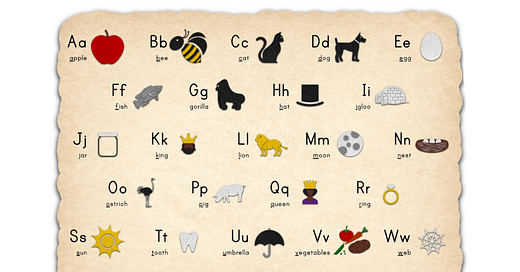Love Phonics? Yes, but it's complicated...
Phonics is incredibly powerful, but we need to understand what it means for English.
What are the letter sounds? T says tuh as in tooth, but t only makes the sound at the beginning of tuh. The uh sound has to be added on, because t, like a lot of consonants, can’t really make its sound on its own.
We also must remember that when saying tuh, we shouldn’t emphasize the uh part, because that can confuse some kids when they start blending letter sounds together to sound out a word. T-o-p is not read tuhopuh.
For kids learning to read in most Western languages, that’s pretty much where it ends. They learn the letter sounds. They learn to blend the sounds together, and they’re reading pretty much any word in their language.
If only English were that simple. For our kids, learning the most common letter sounds is just the beginning of a reading journey that can take years. It gets so much more complex.
T can be silent, like in ballet. T can even do weirder things, like in witch. Is t silent in witch? Some people say it is, but other people say they hear a difference between which and witch.
And when we look at the vowels, it gets crazy! A can say short a as in at and long a as in navy. A can also make a kind of short o sound as in father, and A often makes a short u sound, called schwa, in words like ago and away. E is even worse, and when two vowels get together, they can really get wild!
And there aren’t many good rules to let a kid know exactly which sound is being made out of all these possibilities. They just have to learn by practice and trying things out. For my daughter, I always recommended that she start with the most common letter sounds first. A lot of times, that’s close enough to figure out the word, but often it isn’t enough.
That’s the pickle we find ourselves in with English. I made Jubilant Reader to help kids see and hear how hundreds of different words are sounded out. Yes, we do start out simple, with words that are easily read (decoded) from the simple letter sounds, but we don’t stop there.
Steven Mitchell, PhD
President and Founder




